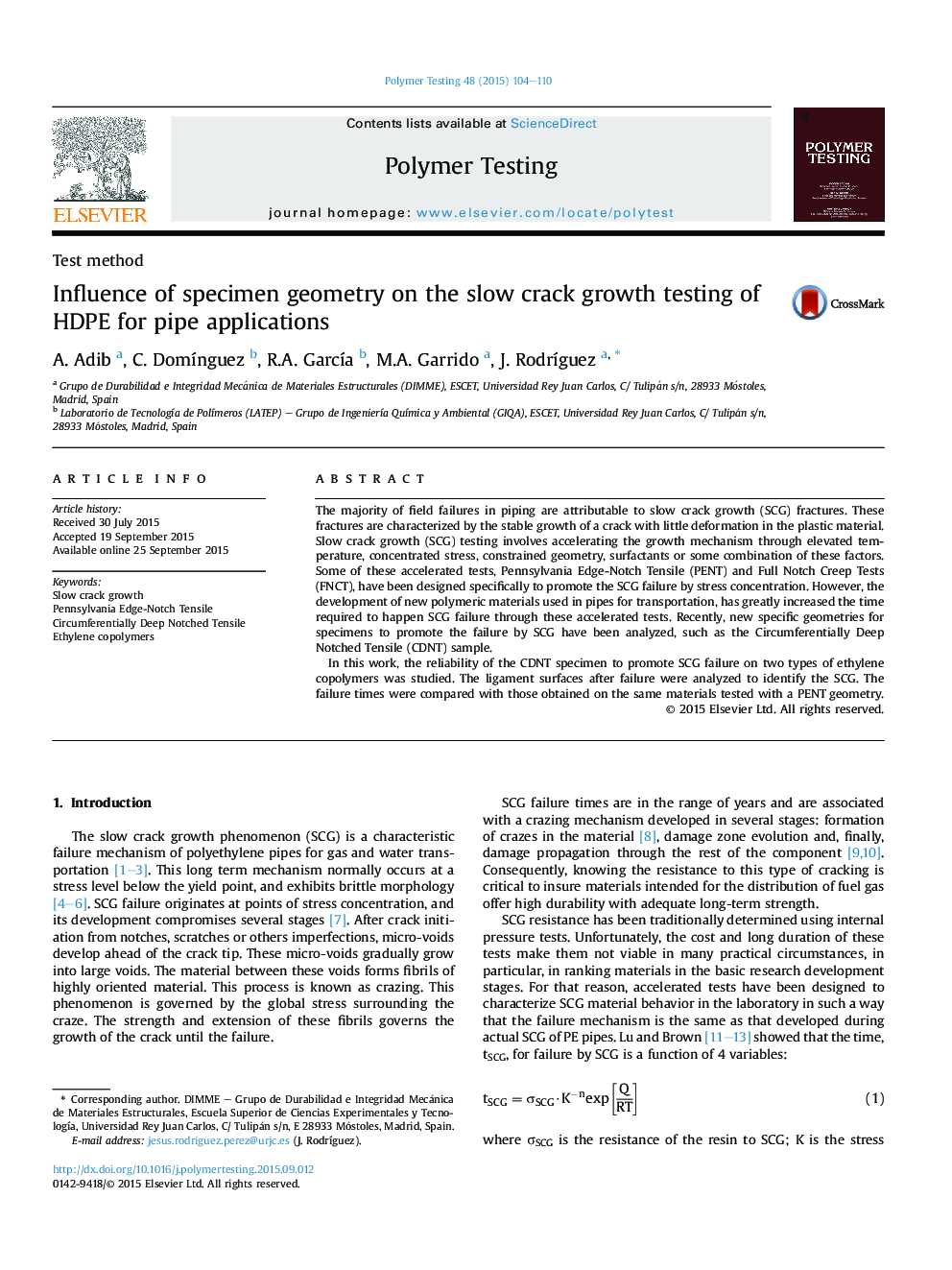| Article ID | Journal | Published Year | Pages | File Type |
|---|---|---|---|---|
| 5205948 | Polymer Testing | 2015 | 7 Pages |
The majority of field failures in piping are attributable to slow crack growth (SCG) fractures. These fractures are characterized by the stable growth of a crack with little deformation in the plastic material. Slow crack growth (SCG) testing involves accelerating the growth mechanism through elevated temperature, concentrated stress, constrained geometry, surfactants or some combination of these factors. Some of these accelerated tests, Pennsylvania Edge-Notch Tensile (PENT) and Full Notch Creep Tests (FNCT), have been designed specifically to promote the SCG failure by stress concentration. However, the development of new polymeric materials used in pipes for transportation, has greatly increased the time required to happen SCG failure through these accelerated tests. Recently, new specific geometries for specimens to promote the failure by SCG have been analyzed, such as the Circumferentially Deep Notched Tensile (CDNT) sample.In this work, the reliability of the CDNT specimen to promote SCG failure on two types of ethylene copolymers was studied. The ligament surfaces after failure were analyzed to identify the SCG. The failure times were compared with those obtained on the same materials tested with a PENT geometry.
